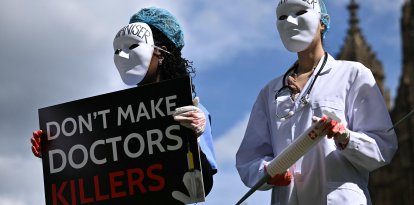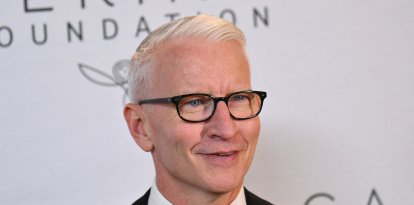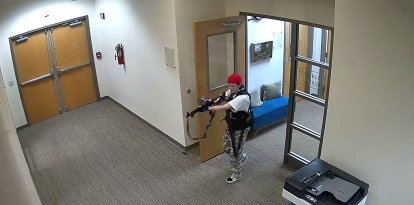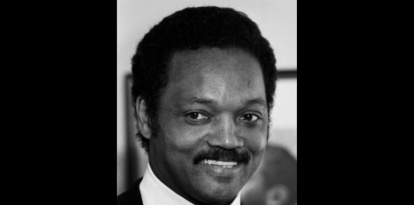The charges against Luigi Mangione that could result in the death penalty
The suspect in the murder of Brian Thompson will face a state and federal indictment.

Luigi Mangione leaves the Blair County courthouse in Hollidaysburg, Pa.
Luigi Mangione (26) finds himself back in New York, from where he allegedly fled to Pennsylvania after the murder of Brian Thompson (50) in front of a hotel earlier this month. Mangione sat on the bench in court for the first time this Thursday.
Mangione will face both state and federal charges. The latest were announced by the Department of Justice on Thursday: two for stalking, one for a firearm offense and one more for manslaughter. The latter could result in the death penalty.
The DOJ claims it has jurisdiction to charge Mangione because he allegedly traveled from Atlanta to New York to commit the crime, including the pre-attack surveillance and the murder itself. The crime, they claim, began in Georgia.
The suspect's attorney, Karen Friedman Agnifilo, issued a statement protesting the new charges:
"The federal government’s reported decision to pile on top of an already overcharged first-degree murder and state terror case is highly unusual and raises serious constitutional and statutory double jeopardy concerns. We are ready to fight these charges in whatever court they are brought," she said.
Access the federal complaint
"Luigi Mangione allegedly conducted the carefully premeditated and targeted execution of Brian Thompson to incite national debates," FBI Assistant Director James E. Dennehy argued in the filing of the federal indictment. "This alleged plot demonstrates a cavalier attitude towards humanity – deeming murder an appropriate recourse to satiate personal grievances."
The other charges against Mangione
At the state level, Mangione faces an additional 11 charges. Just days ago, prosecutors added more to those that were made public earlier this month. One of the new ones, referred to by Agnifilo in its statement, is murder as an act of terrorism.
"This was a frightening, well-planned, targeted murder that was intended to cause shock and attention and intimidation," said Manhattan District Attorney Alvin Bragg regarding the latter. "It occurred in one of the most bustling parts of our city, threatened the safety of local residents and tourists alike, commuters and business people just starting out on their day."
The maximum punishment Mangione can receive for the latter is life in prison, because New York has no death penalty. The charges are:
- Murder in the first degree (one count)
- Murder in the second degree (two counts)
- Criminal possession of a weapon in the second degree (two counts)
- Criminal possession of a weapon in the third degree (four counts)
- Criminal possession of a weapon in the fourth degree (one count)
- Criminal possession of a forged instrument in the second degree (one count)
Early morning murder
Brian Thompson died in the early morning hours of Dec. 4 after being shot on the streets of Manhattan in front of the Hilton Hotel. Police quickly suspected a targeted attack.
Thompson is survived by his wife and two children.
The episode quickly drew attention in the media and online. Images from the cameras that captured the moment of the crime and the escape of the killer were spread across social media. In two of them, the suspect could be seen with his face uncovered.
These images prompted one diner at a McDonald's in Altoona, Pa., four days after the shooting to tell another that the man eating near them resembled the man in the photographs. An employee overheard them and called the police.
Magione was captured at the restaurant. Several details have since emerged, including that an officer found a gun and silencer, both black and 3D printed, in his backpack. Authorities also found a manifesto with threats to the healthcare sector, including the words "these parasites had it coming." It was also reported that Mangione's fingerprints matched those collected at the crime scene.
Social media users, protesters and even some progressive lawmakers came out in defense of Thompson's murder, trying to justify it because of poor service, they say, from insurance companies.



























